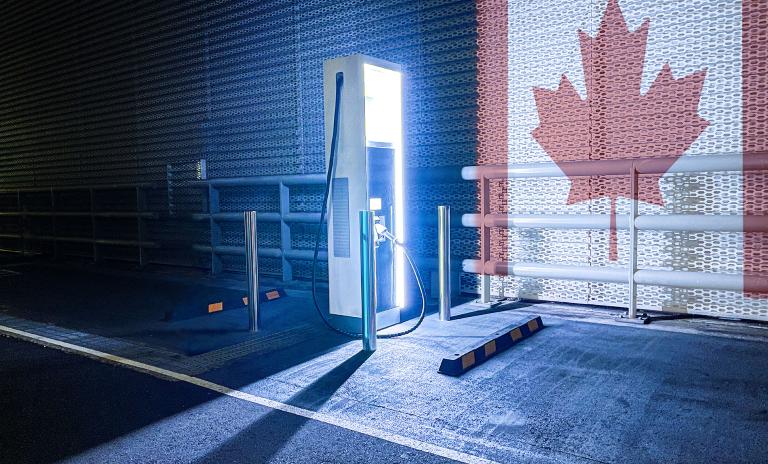EV Charging Index: Expert insight from Canada
![{[downloads[language].preview]}](https://www.rolandberger.com/publications/publication_image/23_2077_art_ev_charging_index_deep_dive_canada_cover_2_download_preview.jpg)
Canada’s EV market is set for major growth thanks to state investment and changes in consumer attitude. Learn more in Roland Berger’s EV Charging Index 2023.


EV adoption rates may be low, but Canada is at an inflection point, with e-mobility poised for substantial growth. New business models for charging are evolving as the focus shifts from ownership of asset to ownership of customer.
Canada is rapidly embracing e-mobility. This is being driven by greater consumer awareness and the government’s push towards a cleaner transportation mix, as well as increased availability of both charging infrastructure and e-vehicles.
A further important factor is that Canadian industry is very closely linked to US industry. The Canadian automotive sector largely exports vehicles to North American markets. With most major OEMs having announced significant plans for electrification, Canada is following the broad direction the US is taking.
Much like the US, the Canadian market has historically been dominated by UVs and pick-up trucks, reflected in its low EV adoption rate of 8% versus a global average of 16%. However, both the passenger (PV) and commercial vehicle (CV) segments are now starting to see growth in EV adoption. Hence, we now believe Canada is at an inflection point, where EV penetration is about to grow substantially.
Customers are increasingly seeking greater certainty of charger availability in terms of geographic spread, charger uptime, charger availability and speed of charging, especially for fast chargers. Ultimately, increasing charger density will give customers greater comfort to choose EVs over internal combustion engine-powered vehicles. Increased EV penetration will push public authorities to further invest in this EV transition. The Canadian government has announced substantial investments to incentivize and subsidize charging. The role of the government and other public sector entities should be to ensure that EV charging is an economic win for everyone involved.
Most major EV charging companies are creating new business models around residential, public, retail and fleet charging, which is helping to drive the rapid development of a robust charging grid in Canada. Utility companies are starting to become seriously involved. The incentives included in the US Inflation Reduction Act are strengthening the case to manufacture in North America – including Canada. Overall, charging is shifting from ownership of asset to ownership of customer. Charging companies are now looking more seriously at the subsequent revenue streams that owning a customer generates.

![{[downloads[language].preview]}](https://www.rolandberger.com/publications/publication_image/23_2077_art_ev_charging_index_deep_dive_canada_cover_2_download_preview.jpg)
Canada’s EV market is set for major growth thanks to state investment and changes in consumer attitude. Learn more in Roland Berger’s EV Charging Index 2023.
Sign up for our newsletter and get regular updates on Automotive topics.
